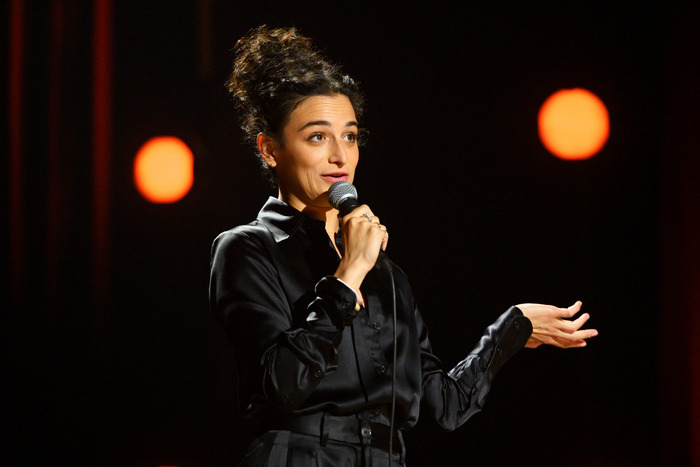This year’s Academy Awards were some of the most unpredictable that I’ve witnessed, as they provided answers to several burning questions in the cultural conversation — notably, who would take home Best Picture in the most open field of the decade, and how the #MeToo movement would factor into Hollywood’s biggest night. Clocking in at nearly four hours, Sunday night’s ceremony was seemingly the snappiest but also most boring broadcast of the past few years. None of the winners were surprising and the anger of the room remained at a bare simmer, which was a disappointing revelation in such a contentious and groundbreaking year.
Naturally, “The Shape of Water” took home the most hardware, racking up four wins out of its 13 nominations (the most of any film this year): Best Picture, Director, Production Design and Original Music Score. “Dunkirk” won three technical categories for its pointless technical affect, while “Three Billboards Outside Ebbing, Missouri” and the beloved “Coco” each claimed two prizes.
In the ceremony’s finale, last year’s Best Picture presenters Warren Beatty and Faye Dunaway returned to give “The Shape of Water” its Best Picture trophy. That came after last year’s infamous envelope mix-up, in which they mistakenly gave the award to the wrong film. “The Shape of Water”’s lovably genuine director Guillermo del Toro cheekily checked Beatty’s envelope for a mistake, later thanking all of the “young filmmakers” of the world in an impassioned speech. With his Best Director win, he now stands as the third Mexican filmmaker to win the award in the past five years, joining his close friends Alfonso Cuaron and Alejandro Gonzalez Inarritu. In the end, it’s hard not to feel happy for del Toro, since his big-hearted, empathetic film eventually won out against Martin McDonagh’s “Three Billboards Outside Ebbing, Missouri,” a borderline unwatchable frontrunner that lavished in poorly-written, mean-spirited irony and an ugly mishandling of race in America that only a white British man could have rendered.
While “The Shape of Water,” a fantastical fable about a woman’s relationship with a sexy fish man, was hardly a bland choice for the top prize, it should have gone to a better, more revolutionary film, such as “Get Out.” That film’s writer-director-producer, the immensely talented Jordan Peele, walked away with a wholeheartedly earned win in Best Original Screenplay, making him the first black writer to win the prize. And 89-year-old James Ivory became the oldest-ever Oscar winner with his Best Adapted Screenplay victory, taking home the only trophy for the excellent “Call Me By Your Name.” In other good news, “Phantom Thread” costume designer Mark Bridges won a much-deserved prize for his work on the film — the only win for Paul Thomas Anderson’s masterpiece — also taking home a jet ski that host Jimmy Kimmel gave to the shortest acceptance speech of the night.
As is the case every year, there are always disappointments. The most egregious upset of the night was the shutout of “Lady Bird,” which won none of the five awards for which it was nominated. That was a criminal oversight on the part of the Academy, considering that “Lady Bird” was the best film nominated in all of those categories — especially in a year where they could have made a powerful statement by sending the film’s deserving director Greta Gerwig to the podium. Despite the legendary cinematographer (and 14-time nominee) Roger Deakins’ first pity win for “Blade Runner 2049,” the trophy should have gone to Rachel Morrison for her extraordinary work on “Mudbound,” and “Phantom Thread”’s Jonny Greenwood sadly lost out for Best Original Score. Another major upset came in the Documentary Feature category, where French New Wave legend Agnes Varda’s film “Faces Places” lost to “Icarus,” an average Netflix doc about Olympic doping scandals.
But, the most frustrating wins came in all four acting categories. The same four actors have made a clean sweep of awards this season, even though all but one gave easily the worst performances in their respective categories — not to mention the predictability of these outcomes. Gary Oldman’s Best Actor win for “Darkest Hour” should have gone to any of his competitors, as was also the case for Sam Rockwell (Best Supporting Actor, “Three Billboards”) and Allison Janney (Best Supporting Actress, “I, Tonya”). Frances McDormand won Best Actress for her lead role in “Three Billboards.” Though she should not have won, the always incredible McDormand was the only thing keeping her film afloat, and her acceptance speech, during which she asked all the females nominated in any category to stand with her, was easily the night’s best moment. She placed her little golden man on the ground, dwarfing him in a gloriously tongue-in-cheek, impromptu show of strength and power.
All in all, the wins seemed to point to a frustrating compromise, one that landed straight in the middlebrow — knocking subtlety, originality and the power of outrage to the outside. The politics of the night felt less radical than they should have been, as if the Oscars had reverted to their age-old pageantries as a self-congratulatory knee-jerk against the industry’s systemic change. But the #MeToo movement finally had its moment onstage, and there were more intersectional wins than traditional ones in a historic field of nominees. Despite the Academy’s intense efforts at diversification, the old guard still obviously holds quite a bit of power. It appears that we were given a rare treat when “Moonlight,” the actual best film of 2016, won the top prize last year in a major coup against the unstoppable, whitewashed jazz-stolgia of “La La Land.” Will a moment that purely revolutionary happen again in the near future? No one knows for sure, but the world of cinema still has a lot of work to do.






